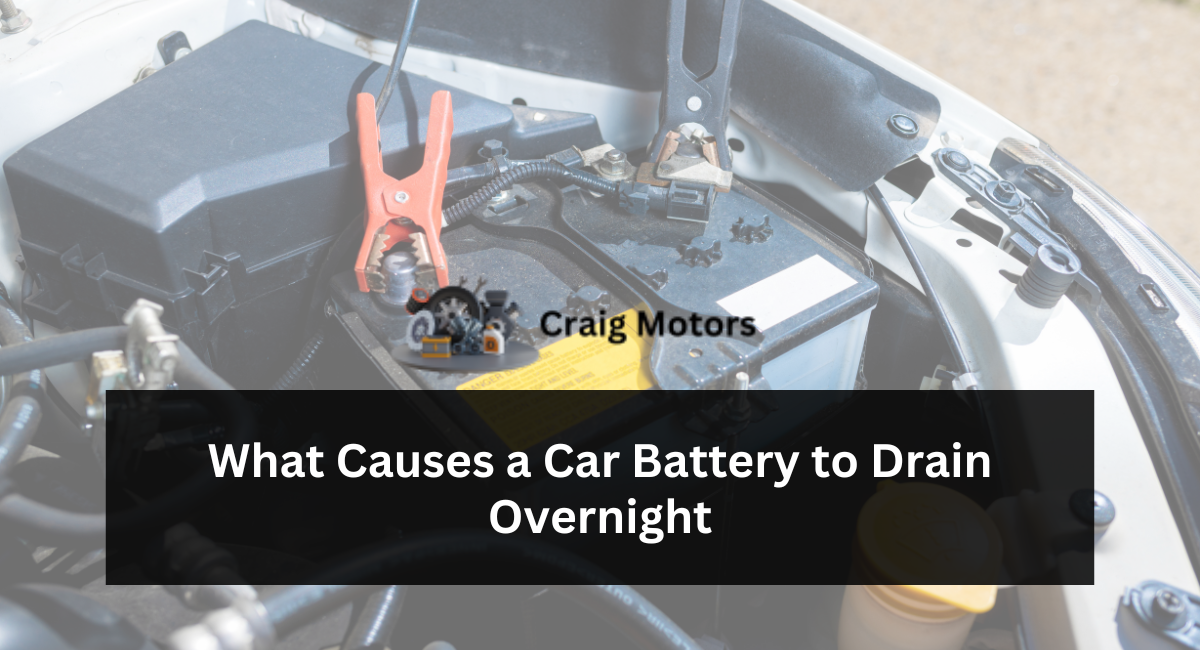Many factors can make you feel tired, such as an unhealthy diet, a stressful workday, or excessive socializing. Even if your car battery is unlikely to attend social events during its downtime, there are still numerous other factors that might leave it feeling as depleted.
What causes a car battery to lose power?
An inactive car battery might be bothersome, but it can also be prevented. In order to avoid a dead battery, it is important to understand the factors that can lead to one. Now, set away those jumper wires and take a look at these seven factors that could potentially clarify why your car battery continues losing power.
Your headlights were left on.
If your automobile battery continues to lose power, the initial items to inspect are your lights. Newer automobiles often include headlights that are programmed to automatically switch off after a specific duration. If your automobile does not have this feature, your headlights may remain on until you manually switch them off or until your car battery is fully depleted.
There is an issue causing a “parasitic draw.”
Even when your automobile is not running, the battery still supplies power to components such as the clock, the radio, and the alarm system. These things should not significantly affect your battery. Possible causes of automobile battery drain when the vehicle is not in use include interior lights, door lights, and faulty relays.
While your engine is operating, the alternator replenishes the battery, which is why you usually don’t need to be concerned about the battery losing power while you’re playing music loudly during your commute to work! However, when the engine is not running, the alternator is unable to replenish the battery, which might result in minor electrical issues depleting your battery completely. The battery stress induced by these electrical mishaps is referred to as a parasitic pull.
To prevent parasitic draws, ensure that all lights are turned off and that the trunk, glove box, and doors are all locked and secured before exiting the vehicle.
Your battery connections are not securely attached or have corrosion.
The positive and negative connections attached to your battery might occasionally become loose over time. These terminals might also get rusted. If the connections on your terminals become loose or corroded, you may experience difficulty starting the car since the battery may not be able to effectively convey its power. You might also experience a sudden stop while driving or harm the electronic parts of the vehicle. Regularly cleaning your car’s battery terminals can help prevent problems connected to corrosion. If you’re not sure how to clean your battery terminals, you may visit your nearby Firestone Complete Auto Care and have a skilled technician take care of it for you.
The weather outside is really hot or cold.
Cold winter conditions and hot summer days can potentially affect your vehicle’s battery. More recent batteries generally exhibit greater tolerance to high seasonal temperatures. If your battery is older, extreme cold or heat may reduce its performance or possibly lead it to stop working entirely! If you observe that your battery is struggling to withstand the weather conditions, visit Firestone Complete Auto Care for a complimentary battery inspection. Our automotive professionals will assist in identifying and resolving the problem.
The battery does not charge when driving.
Your car depends on your battery when you start the engine. However, when your car is in operation, your battery depends on the alternator to assist in maintaining its charge. If your alternator is not functioning properly, it cannot adequately charge your battery, which might make it difficult to start your car, even if you were just driving.
If your car doesn’t start after driving, there’s a possibility that the alternator could be the cause. Take your automobile to a Firestone Complete Auto Care center for a diagnostic check to determine the potential issue.
You’re taking a lot of short drives.
Starting the engine requires a significant amount of electricity from your battery, however as previously said, the alternator replenishes your battery while the engine is running. If you often embark on brief excursions, however, the alternator may not have sufficient time to adequately recharge your battery between stops – particularly if you have an older battery. Over time, making numerous short journeys might reduce the lifespan of your automobile battery.
Your battery is aged.
Nothing is permanent, including the battery of your car. In certain situations, the lifespan of your car’s battery may extend up to five years, although this is contingent upon your geographical location and driving habits. High temperatures, many short excursions, and regular everyday use may reduce the lifespan of your battery to two to three years. If your automobile battery loses its charge rapidly, even after receiving a boost, it may be necessary to consider purchasing a replacement.
Conclusion
Finding the cause of an overnight battery drain is vital for your car’s health. Whether it’s due to a parasitic draw, faulty components, or electrical issues, pinpointing the culprit requires careful inspection. Taking proactive steps, like checking for interior lights or addressing potential wiring problems, can prevent recurrent battery drains. Consulting a mechanic for thorough diagnostics ensures a reliable solution and helps maintain your vehicle’s performance and reliability.

Leave a Reply